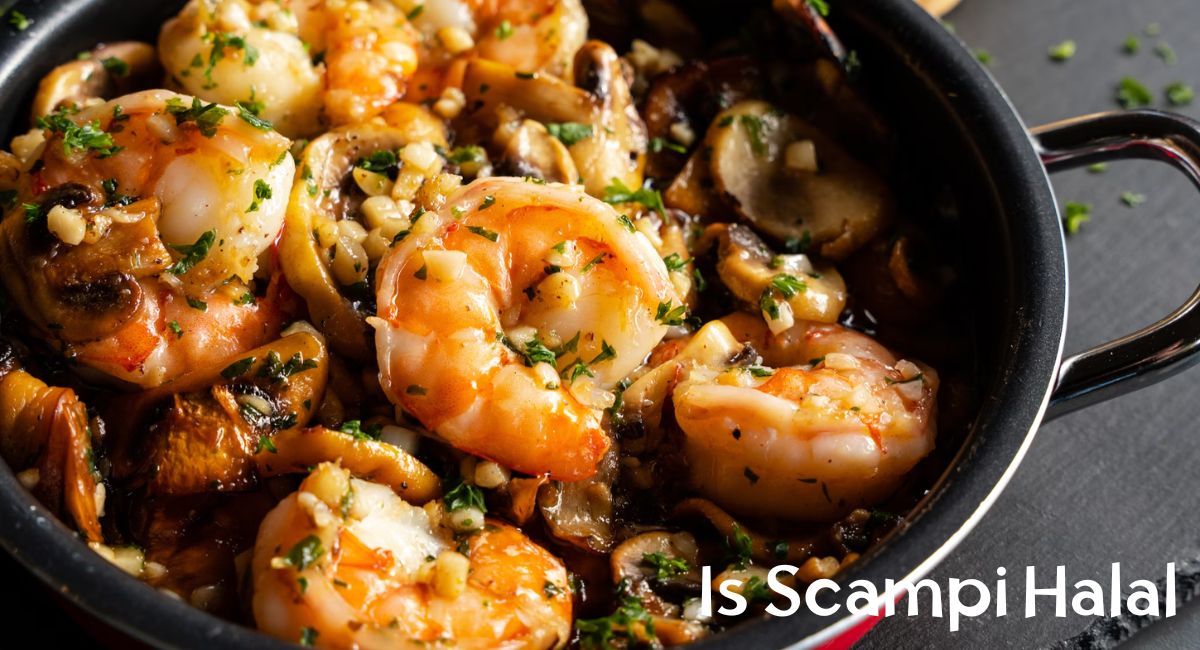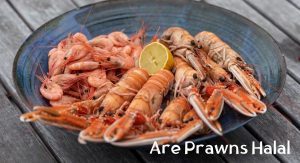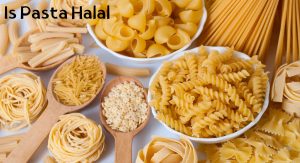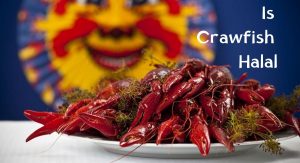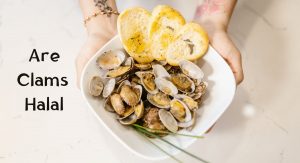For Muslims adhering to halal guidelines, the source, processing, and preparation of food play a crucial role in determining its halal status. Seafood, including various types of crustaceans like shrimp and prawns, is a popular choice for many individuals around the world. However, when it comes to scampi, a specific type of crustacean often used in culinary preparations, questions may arise regarding its halal status.
In this article, we will explore the question, “Is scampi halal?” by delving into the principles and considerations of Islamic dietary guidelines and examining the nature of scampi itself. By gaining a deeper understanding of the topic, we aim to provide clarity and insights for those seeking to make informed choices within the framework of their faith.
What is Scampi
Scampi is a type of hard-shell crustacean found in Italy and is also known as langoustines. It resembles tiny lobsters with pale pink shells. Italian cooks in the United States started using the term “scampi” to refer to shrimp, even though the original scampi were not shrimp. The name swap resulted in dishes like shrimp scampi, where shrimp is cooked in a garlic, lemon, and butter sauce.
In American cooking, the term “shrimp scampi” is commonly used to describe a dish where shrimp is cooked in a garlic, butter, and lemon sauce. It is often served over pasta, such as spaghetti or linguine, but can also be enjoyed on its own without the pasta. Shrimp scampi is a flavorful and popular seafood dish that can be prepared for family dinners or special occasions.
Scampi Ingredients
The ingredients for shrimp scampi can vary slightly depending on the recipe and personal preferences. Here are the ingredients commonly used in shrimp scampi recipes:
- Shrimp: Shrimp is the main ingredient in shrimp scampi. It is usually peeled and deveined, but the tails may be left on for presentation purposes.
- Butter: Butter is a key component of shrimp scampi, providing richness and flavor to the dish. It is typically used for sautéing the shrimp and creating the sauce.
- Garlic: Garlic is a crucial ingredient that adds a distinct flavor to shrimp scampi. It is often minced or finely chopped and sautéed in butter before adding the shrimp.
- White wine: White wine is commonly used in shrimp scampi recipes to deglaze the pan and create a flavorful sauce. It adds acidity and depth to the dish.
- Lemon: Lemon juice and zest are used to brighten the flavors of shrimp scampi. The acidity of lemon juice balances the richness of the butter and enhances the taste of the shrimp.
- Parsley: Fresh parsley is often used as a garnish in shrimp scampi. It adds freshness and a pop of color to the dish.
- Salt and pepper: These basic seasonings are used to enhance the flavors of the shrimp and the sauce.
- Red pepper flakes (optional): Red pepper flakes can be added to provide a hint of heat and spice to shrimp scampi, if desired.
How is Scampi Made

- In a large skillet or pan, melt butter and add olive oil over medium heat. The combination of butter and olive oil provides a rich flavor to the dish.
- Add minced garlic to the pan and cook for about a minute until it becomes fragrant. Be cautious not to burn the garlic as it can turn bitter.
- Increase the heat to medium-high and add the shrimp to the pan. Make sure the shrimp is peeled and deveined. Season the shrimp with salt, pepper, and red pepper flakes if desired. The red pepper flakes add a hint of spice to the dish, but they are optional.
- Cook the shrimp for a couple of minutes on each side until they turn pink and are fully cooked. The exact cooking time may vary depending on the size of the shrimp. Overcooking can make the shrimp rubbery, so it’s important to keep an eye on them and avoid overcooking.
- Once the shrimp are cooked, remove them from the pan and set them aside on a plate. This prevents them from overcooking and becoming tough while the sauce is prepared.
- Deglaze the pan by pouring in white wine and lemon juice. White wine adds acidity and depth of flavor to the sauce, while lemon juice adds brightness and a tangy element. Let the mixture simmer for a minute or two to allow the alcohol to cook off and the flavors to meld together. This process also helps to reduce the sauce slightly and concentrate the flavors.
- Add the cooked shrimp back to the pan with the sauce. Toss the shrimp in the sauce to ensure they are evenly coated. This step allows the shrimp to absorb the flavors of the sauce and enhances their taste.
- Cook the shrimp in the sauce for another minute or two until they are heated through. This ensures that the shrimp are thoroughly warmed before serving.
- Remove the pan from heat and garnish the shrimp scampi with fresh parsley. The parsley adds a touch of freshness and provides a vibrant color to the dish.
- To serve, place the shrimp scampi over cooked pasta, rice, or alongside crusty bread. The sauce is flavorful, and serving it with pasta, rice, or bread allows you to soak up the delicious flavors.
Is Scampi Halal in USA
According to the Hanafi school of Fiqh, which is one of the four major Islamic schools of thought, scampi is considered halal or permissible to eat. This is because scampi is a type of shrimp, and shrimp is considered halal in the Hanafi school of thought. Shrimp is considered to be a type of fish, and anything that is considered fish is permissible to eat according to the Hanafi school.
The general rule is that all seafood is permissible to eat as long as it has fins and scales, and is caught alive from the water. However, the Hanafi school of thought allows the consumption of all types of seafood, including shrimp and prawns, regardless of whether they have fins and scales.
However, it is important to note that other Islamic schools of thought may have different opinions regarding the permissibility of scampi. For example, the Maliki school of thought considers scampi to be impermissible or haram to eat. The Hanbali school of thought also considers scampi to be impermissible to eat, while the Shafi’i school of thought considers it to be makruh or disliked.
It is also important to note that while scampi itself may be permissible to eat, it is important to ensure that it is prepared in a halal manner. This means that it should not be cooked or prepared with any haram ingredients such as alcohol or pork products.
Additionally, if scampi is being served in a restaurant, it is important to ensure that it is not being cooked or prepared in the same kitchen or with the same utensils as haram foods such as pork or alcohol.
Generally, Scampi is cooked with butter, garlic, and white wine. The use of wine in the recipe raises questions about the permissibility of consuming scampi. While the use of alcohol in cooking is generally considered permissible, there is some debate among Islamic scholars about the use of wine in cooking.
One argument is that the alcohol in the wine evaporates during the cooking process, leaving only the flavor behind. Therefore, consuming scampi cooked with wine is considered halal (permissible). However, another argument is that even if the alcohol evaporates, the remaining flavor is still derived from a haram substance, and therefore, consuming scampi cooked with wine is haram (forbidden).
It is important to note that not all scampi recipes contain wine. Some recipes use lemon juice or other non-alcoholic liquids as a substitute for the wine. Therefore, it is recommended that Muslims who are unsure about the permissibility of consuming scampi should inquire about the ingredients used in the recipe before consuming it.
Is Scampi Halal in UK
In Europe, scampi can refer to a dish made with lobster. Lobster scampi is a popular seafood dish that combines succulent lobster meat with a garlic butter sauce. It typically involves cooking lobster tails or lobster meat in a garlic butter sauce, often with the addition of white wine, lemon juice, and various seasonings. The dish is often served over pasta, such as linguini.
The halal status of lobster in Europe is a subject of debate among Islamic scholars. There are different opinions regarding whether lobster is considered halal (permissible) or haram (prohibited) in Islam.
According to Sheikh Ahmad Kutty, a senior lecturer and Islamic scholar, consuming lobsters is considered lawful (halal) based on the verse from the Quran that states, “The game of the sea and its food are lawful unto you” (Al-Ma’idah 5:96).
The three major schools of thought (Hanbali, Maliki, Shafi’i) also deem lobster as halal. However, the Hanafi school of thought considers lobster to be haram (prohibited).
It’s important to note that the issue of whether lobster is halal or haram may vary among different Islamic scholars and cultural contexts. It is advisable for individuals to consult with their local Islamic scholars or halal certification authorities for specific guidance on the matter.
Health Benefits and Nutritional Value of Scampi
While scampi are a delicacy and enjoyed for their taste, they also offer some health benefits and nutritional value. Here are some of the key points:
- Protein: Scampi are a good source of protein. Protein is essential for building and repairing tissues, supporting immune function, and producing enzymes and hormones.
- Omega-3 Fatty Acids: Scampi contain omega-3 fatty acids, which are beneficial for heart health. Omega-3s can help reduce inflammation, improve blood lipid profiles, and support brain function.
- Vitamins and Minerals: Scampi provide various vitamins and minerals, including vitamin B12, vitamin E, zinc, selenium, and phosphorus. Vitamin B12 is important for nerve function and the production of red blood cells, while vitamin E is an antioxidant that helps protect cells from damage.
- Low in Fat: Scampi are relatively low in fat compared to other sources of protein like red meat. This can be beneficial for those who are watching their fat intake or trying to maintain a healthy weight.
- Low in Calories: Scampi are generally low in calories, especially when compared to other seafood options like salmon or tuna. This can make them a suitable choice for those following a calorie-controlled diet.
- Cholesterol Content: Scampi, like other shellfish, contain cholesterol. However, research suggests that dietary cholesterol has less impact on blood cholesterol levels than previously thought, and it is the saturated and trans fats in foods that have a greater influence. Moderation and a balanced diet are key.
It’s important to note that the nutritional content of scampi can vary slightly depending on the specific species, cooking methods, and serving size. Additionally, the nutritional profile may change when scampi are prepared in a dish like shrimp scampi, where additional ingredients like butter and oil are used.
As with any food, it’s best to enjoy scampi as part of a well-rounded and balanced diet. If you have specific dietary concerns or restrictions, it’s recommended to consult with a healthcare professional or registered dietitian for personalized advice.
How to Cook Scampi
Scampi can be cooked in a variety of ways, depending on your preferences and the recipe you’re following. Here are a few common methods for cooking scampi:
- Grilling: Preheat a grill to medium-high heat. Toss the scampi in a marinade of your choice, such as olive oil, garlic, lemon juice, and herbs. Thread the scampi onto skewers and grill for 2-3 minutes per side, until they are opaque and cooked through.
- Sautéing: Heat a skillet or frying pan over medium heat. Add some olive oil or butter to the pan and let it melt. Add the scampi to the pan and cook for 2-3 minutes per side, until they turn pink and are cooked through. You can season them with salt, pepper, and other desired spices or herbs.
- Steaming: Fill a pot or a steamer with water and bring it to a boil. Place the scampi in a steamer basket and set it over the boiling water. Cover the pot and steam the scampi for about 4-6 minutes until they are pink and opaque.
- Boiling: Bring a pot of salted water to a boil. Add the scampi and cook for 2-3 minutes until they turn pink and are cooked through. Drain the scampi and serve them immediately or use them in your desired recipe.
- Baking: Preheat the oven to 400°F (200°C). Place the scampi in a baking dish and drizzle them with olive oil or melted butter. Season with salt, pepper, and any desired herbs or spices. Bake for about 8-10 minutes until they are pink and cooked through.
Frequently Asked Questions
1. Is scampi always shrimp?
Scampi is commonly associated with shrimp, but it is not always shrimp. In the culinary world, “scampi” refers to a cooking style rather than a specific type of seafood. Traditionally, scampi dishes feature langoustines, which are small lobster-like crustaceans. However, in many regions, especially in the United States, the term “scampi” has been adapted to refer to shrimp cooked in a garlic, butter, and white wine sauce. So while scampi is often made with shrimp, it can also be made with other seafood like langoustines or even with chicken or vegetables.
2. Is scampi halal as per hanafi school of thought?
According to the Hanafi school, some scholars consider shrimp to be makruh (discouraged but not forbidden), while others consider it halal. Therefore, if the Hanafi scholar follows the opinion that shrimp is halal, then scampi made with shrimp would also be considered halal. It is important to consult with a qualified Hanafi scholar for a definitive ruling on this matter.
3. Is scampi halal as per Shia school of thought?
In Shia jurisprudence, there is a difference of opinion among scholars regarding the permissibility of consuming shrimp. Some consider it halal, while others consider it haram. Therefore, if the Shia scholar follows the opinion that shrimp is halal, then scampi made with shrimp would also be considered halal. It is recommended to seek guidance from a knowledgeable Shia scholar for a precise answer.
4. Is breaded scampi halal?
The permissibility of breaded scampi would depend on the ingredients used in the breading. If the breading is made with halal ingredients and does not contain any haram (forbidden) substances, then breaded scampi would be considered halal. However, it is essential to carefully check the ingredients and ensure that they meet the dietary requirements of halal consumption. If there are any doubts or uncertainties, it is recommended to consult with a knowledgeable Islamic scholar or a halal certifying authority.
5. Is scampi vegetarian?
No, scampi is not vegetarian. Scampi typically refers to a dish made with seafood, such as shrimp or langoustines, cooked in a garlic, butter, and white wine sauce. Since it involves the use of seafood, which is derived from animals, scampi cannot be considered vegetarian. Vegetarians avoid the consumption of meat, poultry, and seafood.
